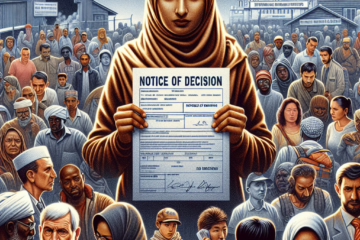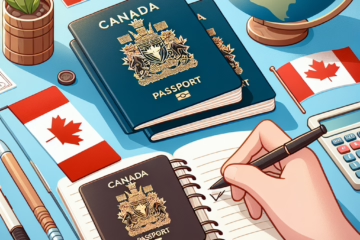Table of contents
Does Canada offer refugee protection?
Canada offers refugee protection to certain individuals who would be in danger if they returned to their home country or the country they normally live in. Some dangers include the risk of cruel and unusual punishment or treatment, risk of torture, or the risk of losing their life.
Who can apply?
To make a refugee claim via this path, you cannot be subject to a removal order and must be in Canada. Claims are referred to the Immigration and Refugee Board of Canada (IRB) which makes decisions on refugee cases.
The IRB distinguishes between a person in need of protection and a Convention refugee. A person in need of protection cannot go back to their home country because of a risk of cruel and unusual punishment or treatment, risk of torture, or the risk of losing their life. A Convention refugee is not able to return to their home country because of a fear of prosecution due to their religion, race, nationality, political opinion, or social group (eg, due to their sexual orientation).
Notably, The Safe Third Country Agreement (STCA) between Canada and the U.S. states that people wanting to claim refugee status must do so in the safe country they arrived in first. Therefore, you cannot make a claim to be a refugee in Canada if you enter from the U.S. via land (exceptions apply, eg, if you have family in Canada).
Your refugee claim may not be sent to the IRB if you:
- Previously withdrew or abandoned a refugee claim
- Previously made a refugee claim that the IRB rejected
- Previously made a refugee claim that was ineligible
- Are not admissible due to human rights violations or criminal activity
- Previously made a refugee claim in a country other than Canada
- Entered Canada via the US border
- Have protected person status in Canada
- Are a Convention refugee in another country you can go back to
How to apply?
The process of applying to be a refugee from inside Canada can be difficult, and that is why our professionals at Pax Law are dedicated to helping you through this process. A claim can be made at the port of entry when you land in person, or online when you are in Canada. You will be asked to share information describing your family, your background, and why you are seeking refugee protection. Note that you can ask for a work permit when you make a refugee claim.
For example, to submit a refugee claim online, you must submit it for yourself and family members simultaneously. You will need to fill out a Basis of Claim (BOC) form, sharing information about yourself and why you are seeking refugee protection in Canada and provide a passport copy (may not be needed in some cases). One of our representatives can help submit a refugee claim for you to the Immigration, Refugees and Citizenship Canada (IRCC). Before a representative can create an account to submit your claim online, you must both sign 1) declaration form [IMM 0175] and 2) Use of a Representative form. These documents allow the representative to submit a claim for you.
In your online application, we can request a work permit at the same time. The work permit will be given only if your claim is eligible to be sent to the IRB AND you complete a medical exam. Note that you cannot get a study permit when you submit a refugee claim. A study permit must be applied for separately.
What happens after you apply?
If we submit your claim online, your claim and those of your family members are checked for completeness. If incomplete, you will be made aware of what is missing. You will then be given a letter acknowledging your claim, instructed to complete a medical exam, and scheduled an in-person appointment. During your appointment, your application will be reviewed and fingerprints, photos and required documents will be collected. You will then be given documents outlining the next steps.
If a decision is not made about your claim at the appointment, you will be scheduled for an interview. At this interview it will be decided if your claim is accepted. If accepted, your claim will be referred to the IRB. After the interview you will get a Refugee Protection Claimant Document and a confirmation of referral to the IRB letter. These documents will prove you have claimed to be a refugee in Canada and allow you to access services in Canada such as the Interim Federal Health Program.
Once referred to the IRB, they will instruct you to appear for a hearing, where your refugee claim will be approved or rejected. You will have a “protected person” status in Canada if the IRB accepts your refugee claim.
Our Lawyers and Immigration professionals at Pax Law are dedicated to helping you through this difficult process. Please reach out to us so that we may act as your representative in submitting your refugee claim.
Note that this article is for informational purposes only.



2 Comments
Muhammad · 08/01/2025 at 9:53 am
My name is Maha Muhammad I’m from Nigeria. I’m live in Ali now. Please help me I’m immigrant. My family need to kill me. Kill my my father and my mother and my young sister please I need help.
Dr. Samin Mortazavi · 09/01/2025 at 6:59 am
Hello,
To make an appointment with one of our lawyers or immigration consultants please use our website link below. To have a confirmed appointment you must prepay the for your appointment.
سلام،
جهت دریافت مشاوره با یکی از وکلای دادگستری یا مشاورین رسمی مهاجرت کانادا دفتر وکالت پکس-لا، شما می بایست از طریق پیوست زیر وقت مشاوره تهیه کرده و حق الامشاوره را بپردازید.
Make an Appointment / تعین وقت مشاوره
https://www.paxlaw.ca/consultation
Payment / پرداخت
https://www.paxlaw.ca/pay
Thank you / متشکرم